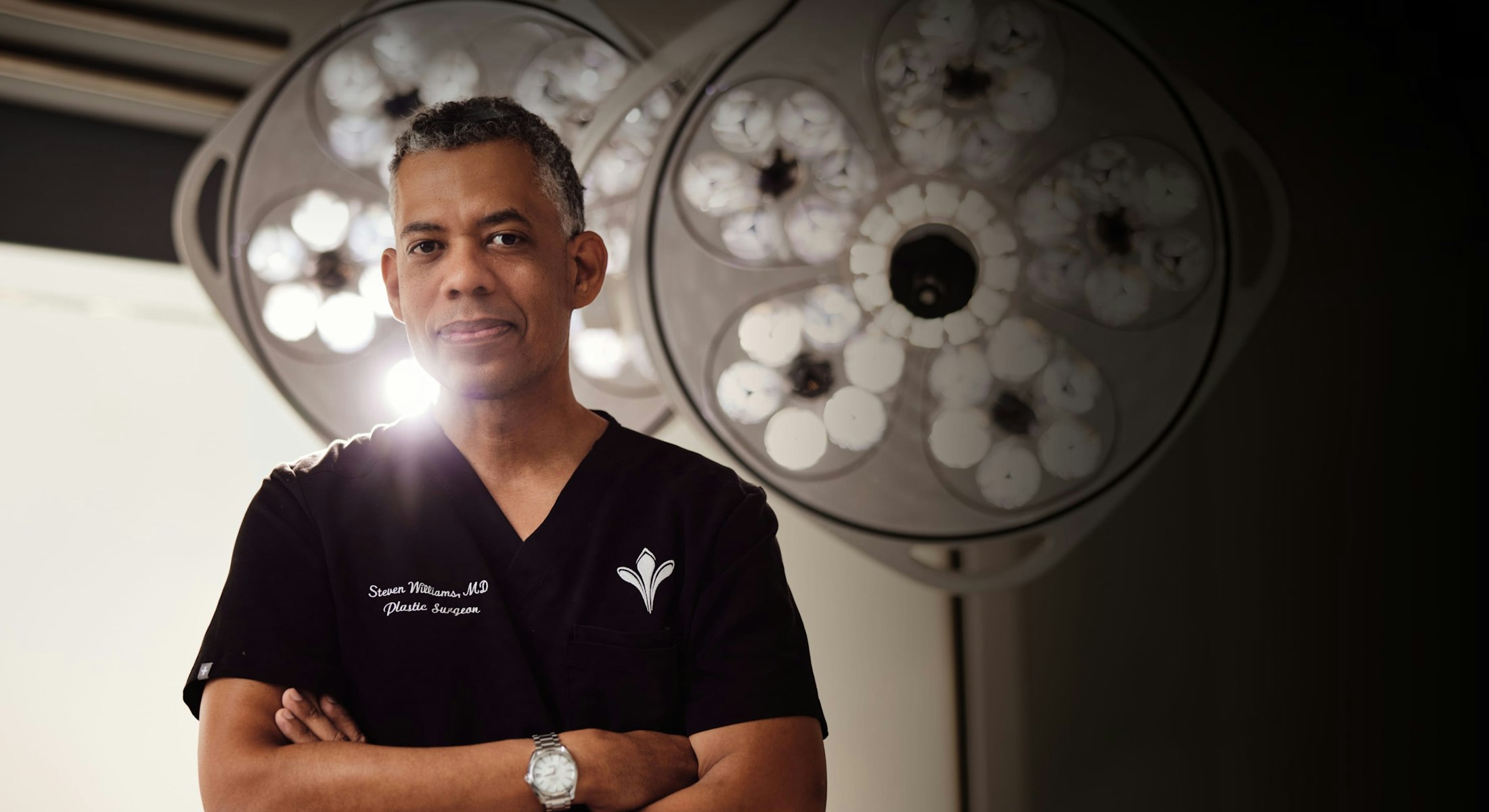Plastic Surgery Inland Empire: Achieve Your Desire Look with Specialist Treatment
Plastic Surgery Inland Empire: Achieve Your Desire Look with Specialist Treatment
Blog Article
Examining the Psychological and Social Factors That Drive Individuals to Consider Aesthetic Surgical Procedure as a Way of Renovation
The choice to seek plastic surgery frequently extends beyond plain visual appeals, intertwining with social and emotional dynamics that merit thorough examination. Variables such as self-worth, pervasive societal appeal requirements, and the pervasive impact of social networks assemble to form private motivations for medical enhancement. As these influences come to be progressively popular, recognizing the underlying psychological and cultural contexts is necessary. What stays to be explored is the extensive influence these aspects have not just on individual identification yet additionally on wider social standards and values bordering appeal and acceptance.
The Function of Self-Esteem
Self-confidence significantly affects a person's choice to seek plastic surgery. Individuals with reduced self-esteem commonly perceive themselves in an adverse light, causing sensations of insufficiency regarding their physical look. This negative self-perception can drive them to seek surgical interventions as an approach of enhancing their self-image. The wish for renovation in one's look is frequently linked to a belief that such modifications will certainly raise their total self-worth and confidence.

Eventually, the duty of self-esteem in the decision-making process pertaining to plastic surgery highlights the intricate interplay in between body image, personal fulfillment, and mental health. Understanding this connection is critical for medical care specialists to ensure that people are making educated choices rooted in practical assumptions and emotional wellness.
Societal Charm Specifications
Influenced by pervasive media portrayals and cultural stories, social beauty requirements play a critical duty fit individuals' understandings of their own bodies. These standards are frequently characterized by an idealized form of beauty that emphasizes traits such as youthful vigor, balance, and slimness. As these ideals are bolstered through numerous channels, consisting of movie, marketing, and tv, people frequently internalize these messages, causing discontentment with their all-natural appearance.
The implications of these social standards prolong beyond visual preferences; they can impact self-confidence, mental health, and social connections. Individuals who view themselves as disappointing these requirements might experience sensations of inadequacy, motivating a wish for cosmetic surgical procedure as a way of attaining societal approval. This quest is commonly sustained by the idea that complying with these suitables will certainly boost not just physical appearance but likewise social standing and personal satisfaction.

Impact of Social Media
The effect of social charm standards is more intensified by the increase of social media sites systems, where curated images and idyllic representations of beauty are common. Users are frequently revealed to filteringed system and modified photographs, which typically show unattainable physical features. This direct exposure grows a society of comparison, leading individuals to examine their very own look against these usually unrealistic benchmarks.
Social network influencers and celebs regularly promote cosmetic procedures, normalizing the idea that surgical improvements are a feasible ways for attaining social perfects (plastic surgery rancho cucamonga). The presence of these enhancements can produce an understanding that undergoing cosmetic surgery is a standard method, consequently affecting people to think about comparable interventions as a pathway to enhanced self-confidence and social acceptance
In addition, the interactive nature of social networks enables prompt comments via likes and comments, even more reinforcing the need to adapt to popular elegance standards. Such communications can exacerbate feelings of inadequacy and drive people towards plastic surgery as a method of obtaining recognition. Inevitably, social networks plays an essential duty fit assumptions of charm, which significantly influences the decision-making procedures bordering plastic surgery.

Social Point Of Views on Look
Throughout numerous cultures, understandings of appearance are deeply rooted in historic, social, and economic contexts, forming individuals' sights on elegance and charm. In several societies, appearance acts as a substantial marker of identity, affecting social condition, professional possibilities, and individual partnerships. For instance, in some cultures, light skin is usually related to riches and privilege, while others might glorify darker skin tones as signs of strength and credibility.
In addition, standard beauty criteria are frequently bolstered with cultural stories, media representations, and family members influences, bring about differing perfects throughout various areas (plastic surgery rancho cucamonga). In Western cultures, the focus on youth and physical conditioning typically drives people towards cosmetic improvement, while in certain Eastern societies, even more subtle adjustments lined up with typical aesthetics may be favored
Globalization and the spreading of digital media have actually further made complex these characteristics, creating a hybridization of appeal perfects that transcends geographical borders. As people progressively browse these social narratives, the stress to adapt certain appearance requirements can cause the need for cosmetic surgical treatment, mirroring a complicated interaction of individual aspirations and cultural values. Recognizing these social perspectives is essential in attending to the see this site inspirations behind cosmetic surgical procedure considerations.
Mental Influences of Plastic Surgery
Many individuals seeking cosmetic surgical treatment report experiencing profound emotional influences that can significantly modify their self-perception and psychological wellness - plastic surgery rancho cucamonga. The desire for physical improvement usually originates from underlying concerns such as low self-esteem, body dysmorphic disorder, or social stress pertaining to appeal requirements. For some, the immediate post-operative phase can cause a momentary boost in self-confidence and satisfaction with their look, promoting a sense of empowerment
However, these favorable feelings might not be withstanding. Study suggests that while some clients experience improved self-worth, others may encounter increased stress and anxiety or depression if their expectations are not fulfilled. This inconsistency can arise from impractical ideals bolstered by media representation and social click narratives bordering charm.
Furthermore, the mental ramifications of plastic surgery prolong beyond the person. Relationships with family and friends might be strained as social dynamics change, resulting in sensations of isolation or alienation. Eventually, the psychological effects of plastic surgery are intricate and diverse, requiring mindful consideration by both prospective patients and healthcare suppliers to guarantee enlightened decision-making and sensible expectations.
Verdict
Finally, the choice to go after cosmetic surgical procedure is dramatically influenced by a combination of self-worth issues, societal elegance standards, and social point of views on look. The pervasive reach of social networks even more worsens these pressures, promoting unrealistic perfects that individuals frequently make every effort to achieve. Comprehending these social and psychological factors is vital for resolving the inspirations behind plastic surgery, highlighting the need for a more nuanced discussion bordering elegance and self-acceptance in contemporary culture.
The decision to pursue cosmetic surgical treatment usually extends beyond simple visual appeals, linking with psychological and social dynamics that merit complete examination. Ultimately, social media plays a critical role in shaping perceptions of beauty, which significantly influences the decision-making procedures bordering cosmetic surgical treatment.
As individuals significantly browse these cultural narratives, the pressure to conform to details look requirements can lead to the desire for cosmetic surgery, mirroring an intricate interaction of individual ambitions and social values.In final thought, the choice to go after cosmetic surgery is substantially influenced by a combination of self-worth concerns, social appeal criteria, and social viewpoints on look. Recognizing these social and emotional variables is vital for resolving the inspirations behind cosmetic surgery, highlighting the demand find out here now for an extra nuanced discussion surrounding beauty and self-acceptance in modern culture.
Report this page